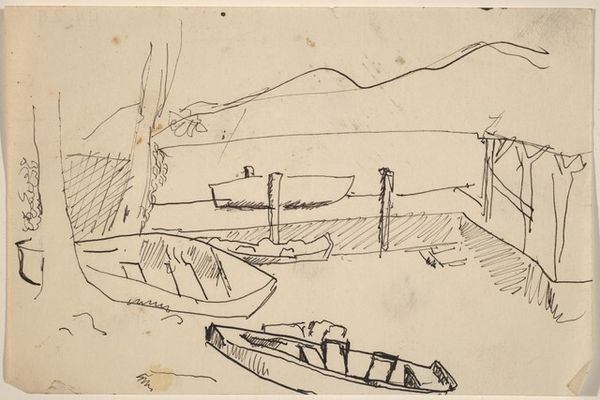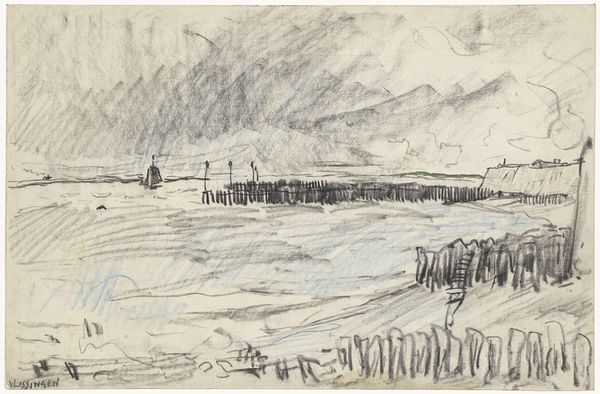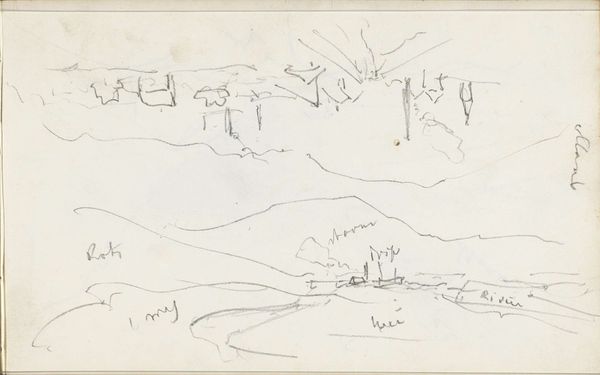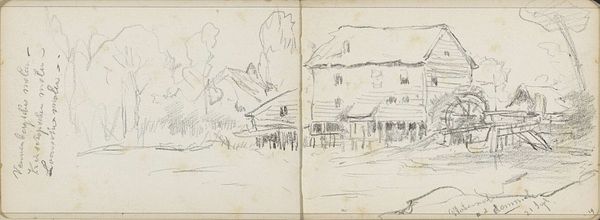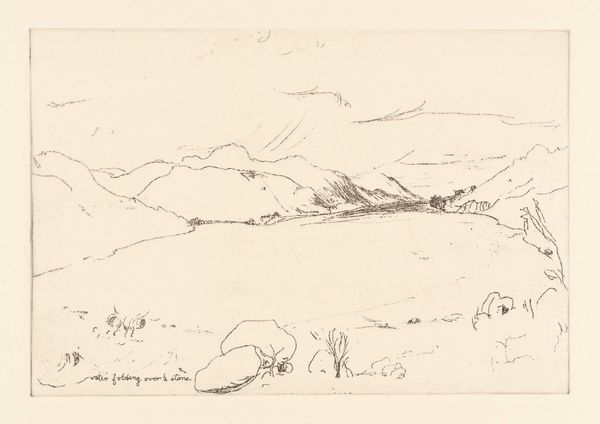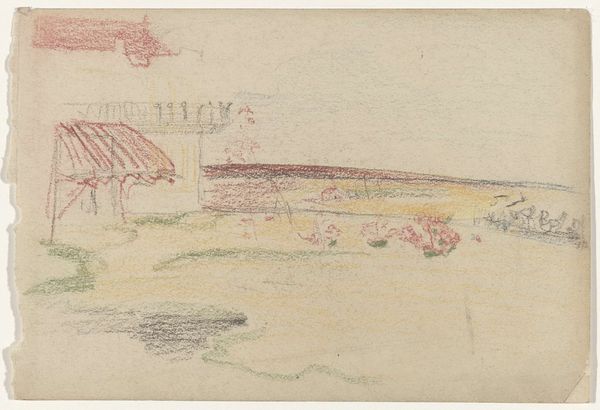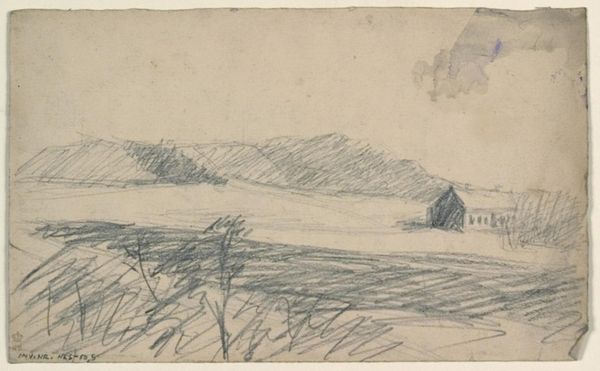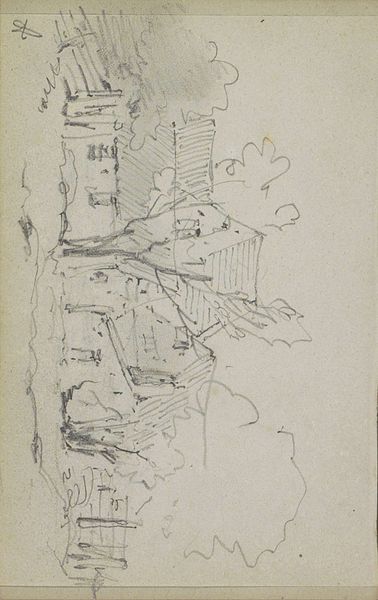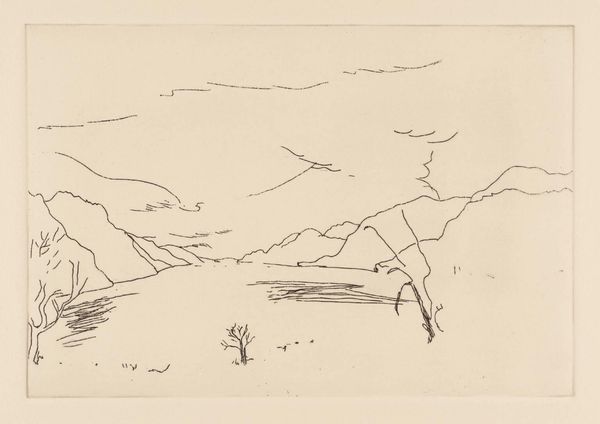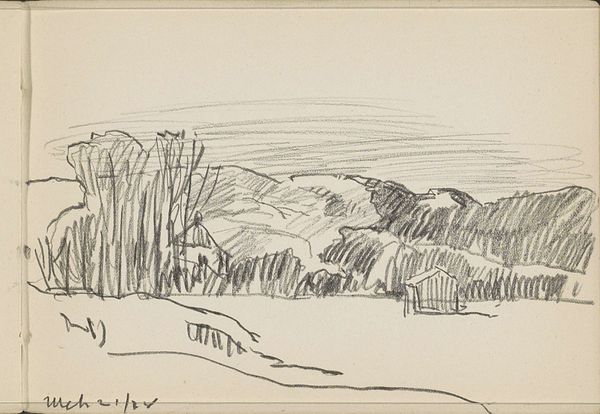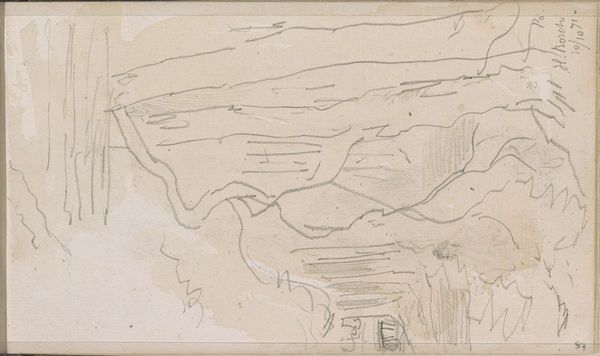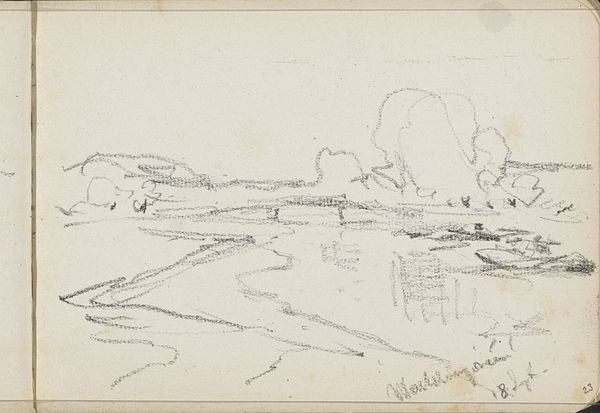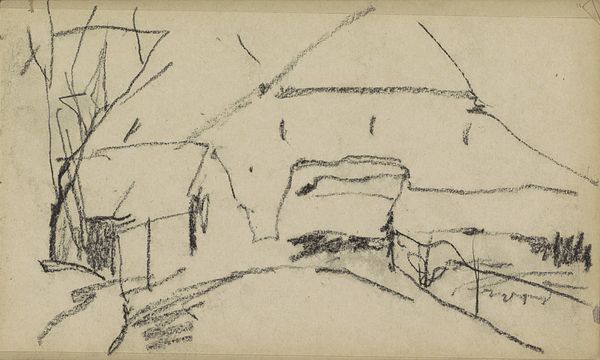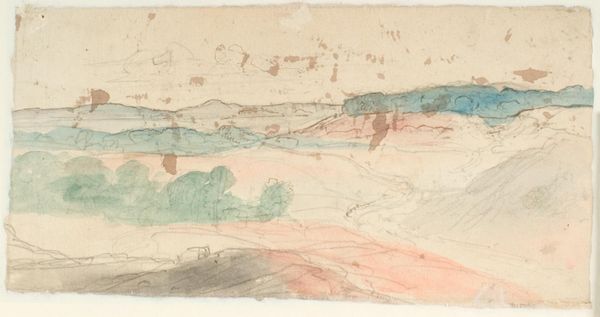
drawing, pencil
#
drawing
#
impressionism
#
landscape
#
pencil
#
realism
Copyright: Public Domain: Artvee
Editor: This is Jean-François Millet's pencil drawing "Vosges," from around 1867. It's a quick sketch, almost dreamlike. I’m struck by the way the building sits so humbly within the landscape, and I was wondering how you interpret this work, with its apparent simplicity. Curator: It’s precisely that humility, that deliberate positioning within a specific social and environmental context that I find compelling. Millet was deeply concerned with the plight of rural communities, with the peasant experience in mid-19th century France. So the placement isn't accidental. It begs the questions: who are the inhabitants? How is their existence intertwined with this environment? This wasn't just a pretty landscape to Millet, you see. It’s a space of labor, a space of being for a community often overlooked and marginalized by urban, bourgeois society. How do you think Millet’s style—the rapid strokes and unpolished feel—contributes to this understanding? Editor: I see what you mean. It’s like he’s emphasizing the raw, unvarnished truth of their lives. The roughness of the drawing echoes the roughness of rural existence. It avoids idealization, I think. Curator: Exactly. And in doing so, Millet subtly challenges the dominant artistic conventions that favored romanticized or idealized depictions of nature and rural life. He’s using the landscape, and his representation of it, to make a statement about class, labor, and the often-unequal relationship between humans and the land. The inclusion of handwriting is very relevant. The social history inscribed inside the landscape. The words of working people given new weight and a permanent medium. Editor: So it's more than just a landscape. It's a commentary on society. It really makes you consider the hidden narratives within seemingly simple scenes. Thanks for highlighting that! Curator: Indeed. Considering those narratives is our responsibility when we contemplate these images today. Thanks for seeing that as well!
Comments
No comments
Be the first to comment and join the conversation on the ultimate creative platform.
